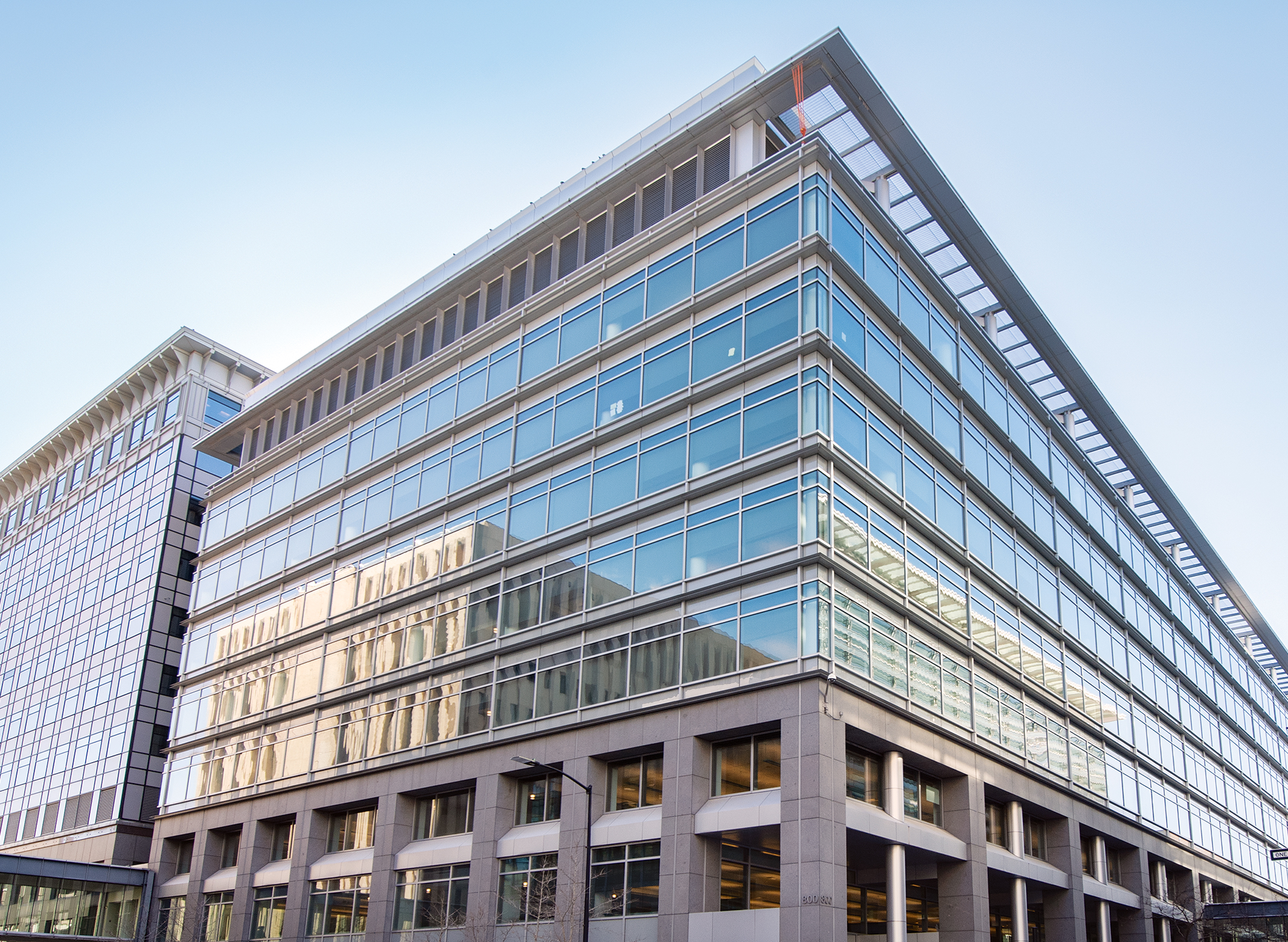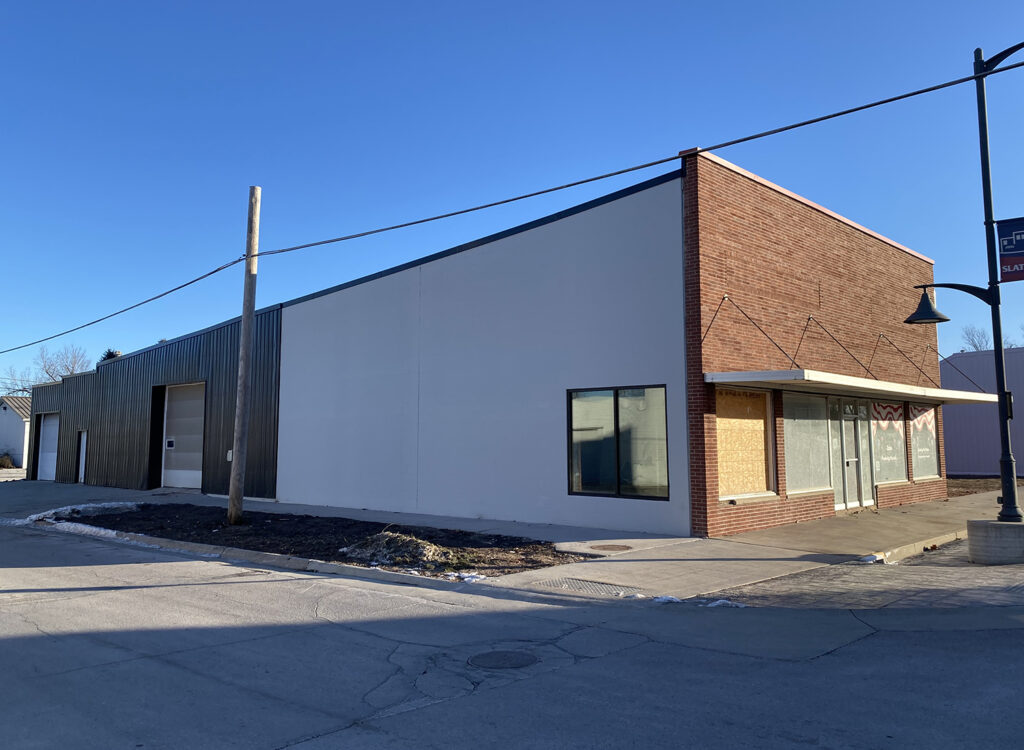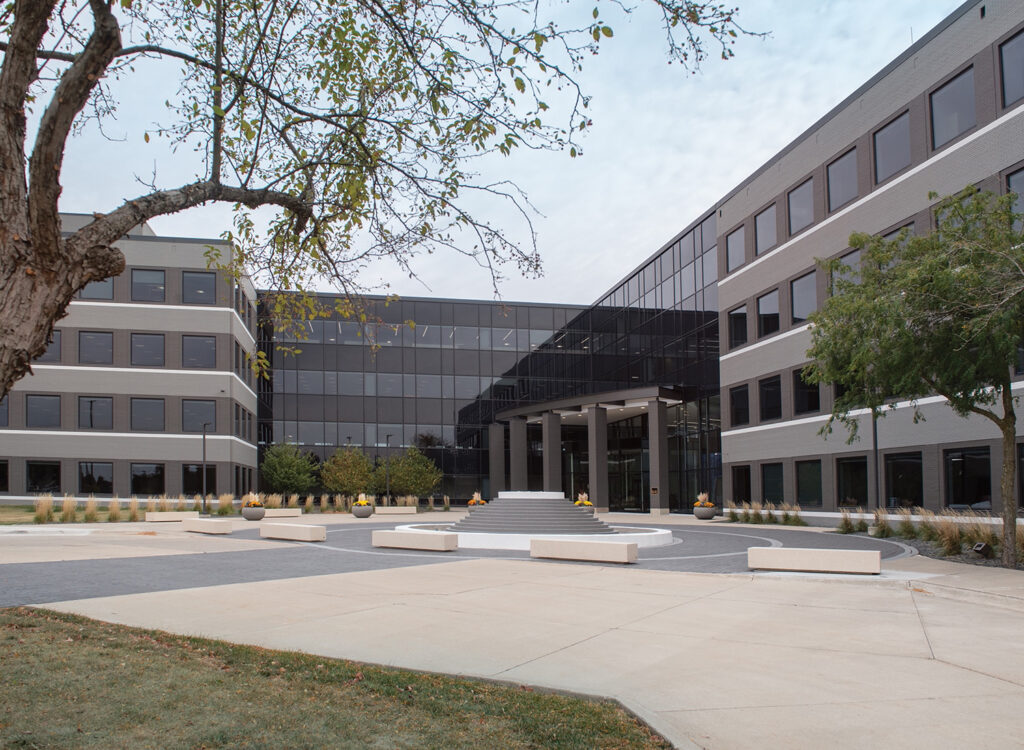Downtown Des Moines more than a place to work
It’s become a place to eat, live and play, supporters say

Kathy A. Bolten Feb 10, 2023 | 6:00 am
8 min read time
2,013 wordsBusiness Record Insider, Real Estate and DevelopmentWells Fargo’s plan to move a majority of its downtown workers to a sprawling corporate campus in West Des Moines was not welcome news to supporters of Des Moines’ central business district.
But it wasn’t cause for hand-wringing either.
Since well before the start of the pandemic, leaders have been working to make downtown Des Moines a place not only to work but also to live, socialize and be entertained.
Between 2010 and 2020, nearly 3,500 residential units were added to the central business district, boosting its population to well over 8,000, census data shows. Additional projects are expected to add hundreds more residents to the area.
Recreational areas have been added or are planned, including a signature piece of the ICON Water Trails project that will create whitewater features for kayaking and other activities near the confluence of the Des Moines and Raccoon rivers. The Pro Iowa Soccer Stadium and Global Plaza is planned on downtown’s southwest edge. Lauridsen Skatepark, the largest in the United States, opened in 2021.
In the past year new restaurants and breweries have opened, including Big Grove Brewery & Taproom, Twisted Vine, Barrel House and Tupelo Honey.
The additional residents and increases in places to socialize and be entertained means less reliance on office workers to keep an energetic downtown area.
“We are not giving up on office workers,” Matt Anderson, Des Moines’ deputy city manager, said. “But we are relying more heavily on entertainment, hotels, tourism and residents to create those different types of placemaking rather than making downtown just a place to come to do your work.”
The downtown area is ever evolving, said Greg Edwards, president and CEO of Catch Des Moines.
“I think [downtown is] looked at as an entertainment district today, more so than it was a few decades ago,” Edwards said. “There’s the Civic Center and [Iowa] Event Center. A lot of people still come downtown for entertainment.”
Wells Fargo relocating workers
In late January, Wells Fargo told employees that by the end of 2023 a large number of downtown workers would move to the company’s Jordan Creek campus.
The relocation of workers means Wells Fargo will vacate office buildings at 800 Walnut St. and 206 Eighth St., according to a spokesperson. Officials are considering options for the office properties, including selling them, the spokesperson said.
People who work in Wells Fargo’s legal department and corporate and investment banking team will remain downtown, working out of the company’s building at 801 Walnut St.
Wells Fargo’s spokesperson has declined to say how many workers will be relocated from downtown to West Des Moines. In the early 2000s, when Wells Fargo announced plans to build the office buildings at 800 and 801 Walnut St., officials estimated about 2,500 people would work in the buildings, according to news reports.
“We don’t like losing downtown workers,” Anderson said. “On the bright side, most of them haven’t worked downtown since the start of COVID. I don’t know that, from a foot traffic standpoint, we’ll notice the difference.
“What we will miss is that rebound we were hoping to see when companies start asking employees to be in the office more than they are now.”
Consolidation not surprising
Nationally, officials of large companies are reviewing how much space is needed for a workforce that no longer spends five days a week in an office, said TJ Jacobs, a vice president at CBRE’s West Des Moines office.
The pandemic forced office workers to work from home, and many now are reluctant to return to their cubicles on a full-time basis. Numerous companies, including Wells Fargo, allow employees that don’t have direct interaction with other employees to work remotely at least part of the week.
That has meant a slow return of workers to downtown offices as well as suburban office parks.
Before the pandemic, the Greater Des Moines Partnership estimated that between 75,000 and 80,000 people worked downtown. It’s not known how many people now work downtown on a daily basis.
However, the Partnership estimated that in January, downtown foot traffic averaged 84% of overall pre-pandemic levels, a spokesperson said.
With fewer workers occupying offices, there’s little need to keep the space, corporate leaders surmise.
“Wells Fargo is making prudent decisions with their office space,” Jacobs said. “From their standpoint, it’s strategic. It makes sense for them to give up some space in an area that they see they’ll be able to either re-lease or sell to someone.”
The scenario is one that is familiar.
Nearly 10 years ago, the Des Moines Register vacated its longtime home at 715 Locust St. to leased space in Capital Square. The company, which over several decades eliminated hundreds of jobs, didn’t need to occupy an entire office high-rise. The building was sold and converted to multifamily.
More recently, Nationwide Mutual Insurance Co. downsized its downtown office footprint. For several years the company occupied two downtown office buildings: 1100 and 1200 Locust St. In early 2022 the company consolidated its offices at 1100 Locust St. The city of Des Moines has offered to buy the property at 1200 Locust St.
More companies will make similar decisions in the coming months, moves that will likely increase the amount of vacant office space in downtown and elsewhere.
In the past four years, the amount of vacant office space in Des Moines’ central business district has more than doubled, CBRE’s fourth-quarter market report shows.
In 2022’s fourth quarter, 17.9%, or 1.16 million square feet, of the downtown area’s more than 6.5 million square feet of office space was vacant, according to the CBRE report. In 2019’s first quarter, 7.6%, or 477,573 square feet, of downtown’s office space was vacant, CBRE data shows.
Before the start of the pandemic in spring 2020, office occupancies were on the rise and discussions were occurring about constructing additional space, Anderson said. One area that had been discussed for the development of more office space was the Market District, an area east of the Des Moines River and north of Martin Luther King Jr. Parkway that is being redeveloped.
“That’s going to be harder to do now,” Anderson said. “We’re seeing a shift in the market cycle, and real estate developers will adapt and business owners will adapt.”
Downtown as an entertainment district
During the past two decades, Des Moines’ downtown area has been transforming from a work center to an entertainment district.
Wells Fargo Arena opened in 2005. Court Avenue has added more restaurants. Breweries have opened.
The Greater Des Moines Partnership is spearheading Downtown DSM: Future Forward, a 10-year vision and action plan to help position the region for short-term economic recovery following the pandemic and long-term economic vitality.
Initiatives include reimagining the skywalk system; making more connections between downtown amenities like the Pappajohn Sculpture Garden and the future pro soccer stadium and Gray’s Lake; and rebranding the area south of Martin Luther King Jr. Parkway between Principal Park and the Pro Iowa Soccer stadium as the stadium district.
“We are optimistic about the future of downtown in part because we are building upon our current momentum while also outlining a vision for the future,” Tiffany Tauscheck, the Partnership’s chief operations officer, said in a prepared statement.
That momentum includes the recent announcement by OpenLoop Health that it is adding 400 new jobs and expanding the amount of space it leases in a downtown office building. In addition, Cattlemen’s Heritage Beef Co. announced an expansion of its downtown headquarters and Landus Corp. relocated its headquarters from Ames to Des Moines.
The Partnership’s economic development team in 2022 assisted on 14 projects in downtown Des Moines, according to a spokesperson for the group. “This was the highest number of projects in one year that downtown has had in the last 10 years,” the spokesperson wrote in an email.
“We’ve got a lot of downtown residents that provide a steady flow of business for restaurants,” Edwards said. “Retail is pretty strong in the East Village area. We’ve got a lot of good entertainment downtown.
“I really think the future is positive.”
Wells Fargo owns 12 downtown properties. Can some be redeveloped?
Wells Fargo owns 12 properties in downtown Des Moines, including six surface parking lots, four office buildings, a warehouse and a 1,600-space parking garage, a review of assessor data shows.
Company officials have said they will continue to use the office building at 801 Walnut St. and will vacate offices at 206 Eighth St. and 800 Walnut St. Officials have not said what their plans are for a smaller office building at 207 Ninth St., the parking garage or the surface parking lots.
A company spokesman has said officials are “evaluating options” for the properties, including selling them.
The value of the downtown property owned by Wells Fargo totals over $125.5 million.
The surface parking lots owned by Wells Fargo include 8.2 acres of semi-developed land.
For several years, city officials have wanted to see the surface parking lots developed into housing, restaurants or entertainment venues, Matt Anderson, Des Moines’ deputy city manager, said.
“I’m optimistic that we’re going to see some higher and better uses of those properties, most of which have some great visibility from [Martin Luther King Jr. Parkway],” he said.
What will be challenging, however, is finding occupants for the office buildings Wells Fargo is abandoning, Anderson said.
Options include converting the office properties to residential or hotel uses, he said.
While hundreds of apartment units have been added to downtown in the past decade, there’s room for more, he said. “I’m not concerned about the market’s ability to absorb more multifamily. There still seems to be plenty of demand for it.”
There may also be interest from a company looking to occupy 100,000 square feet or more of Class A or Class B office space, Anderson said. Often companies located across the country put out queries seeking large blocks of space with nearby available parking, he said.
“Most of the time we ignore those inquiries because we can’t meet their needs,” Anderson said. “Now when the [Greater Des Moines] Partnership’s economic development folks are at regional trade shows, they’ll be able to say that we’ve got space available. … We might be able to attract some new deals that we otherwise couldn’t attract before.”
Interest remains high in the Des Moines area for “high-quality” real estate properties, said Justin Lossner, a managing director of JLL Des Moines. Typically, users of space that range from 2,000 to 8,000 square feet look in the suburbs for places to lease, he said. “There are far better and more options in the suburbs, which has put downtown at a disadvantage.
“But if someone could buy a high-quality downtown asset with a large floor plate that could easily be multi-tenanted and provide amenity-rich experiences, there’s going to be an appetite for it,” Lossner said.
Is Des Moines obligated to give Wells Fargo economic grant dollars?
Attorneys for the city of Des Moines are exploring whether the city will be obligated to continue to make payments on economic development grants it agreed to give Wells Fargo when the company built two office buildings in the 800 block of Walnut Street in the early 2000s, Matt Anderson, deputy city manager, said.
The city has seven grant payments remaining: One payment due in June 2024 is for the building Wells Fargo is vacating at 800 Walnut St., the other six payments are for the building at 801 Walnut St. that the company will continue to occupy.
The seven payments total about $2.9 million, Anderson said.
The development agreements for each building are linked, Anderson said. “Our attorneys are still looking at this, but potentially, if they vacate one building, we don’t have to make the payments on the other building.
“We need to sit down with [Wells Fargo officials] and get everyone to understand the implications of these decisions” to leave downtown, he said.
Wells Fargo has told workers that by the end of 2023, many of its downtown employees will move to the company’s campus in West Des Moines.

Kathy A. Bolten
Kathy A. Bolten is a senior staff writer at Business Record. She covers real estate and development, workforce development, education, banking and finance, and housing.









